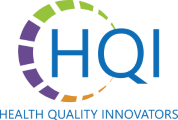
Transforming Hospital Care Through Evidence-Based Practices and Community Collaboration
Client: A total of 119 hospitals participating in the Centers for Medicare & Medicaid Services’ Hospital Quality Improvement Contractor (HQIC) initiative across 22 states and 1 territory.
Challenge: Rural communities experience disproportionately higher poverty rates and a greater prevalence of chronic health conditions. Patients in these areas are also more likely to be uninsured or underinsured when seeking hospital care. Compounding healthcare outcomes, especially mortality, is that rural communities have been disproportionately affected by the opioid epidemic. These factors identified a need for healthcare transformation that would span across rural, medically-underserved, vulnerable populations.
Solution: Building upon the progress achieved through CMS’s Hospital Engagement Network and Quality Innovation Network programs, HQI advanced the adoption of evidence-based practices, standardized performance metrics, and supported hospitals in delivering safer, more effective care.
Our team provided hospitals with essential tools, training, data analysis and expert consultation to drive improvements in critical areas such as hospital-acquired infections, readmissions, sepsis, pressure injuries, adverse drug events, falls and behavioral health. Additionally, the initiative fostered connections with local resources to strengthen care coordination, improve opioid prescribing practices and enhance population health outcomes
Results: Participating hospitals achieved remarkable improvements in patient safety and care quality. Notably, there was a 65% relative improvement rate (RIR) in central-line associated bloodstream infections (CLABSI), a 26% RIR in 30-day sepsis mortality and a 12% RIR in 30-day readmission rates. Additionally, hospitals saw a 44% RIR in Stage 3 or 4 hospital-acquired pressure injuries (HAPIs).
Beyond clinical outcomes, the initiative fostered widespread adoption of best practices: 80% of participating facilities now conduct shift change huddles and bedside shift reports with patients and families, enhancing communication and continuity of care. Furthermore, more than 90% are actively screening for social drivers of health (SDOH), more than 84% are collecting health equity data and over 70% have formally established workplace violence prevention as a strategic priority. These outcomes reflect a strong commitment to equitable, safe patient care.
Sponsor: This project was funded by the Centers for Medicare & Medicaid Services (CMS) through the Hospital Quality Improvement Contractor (HQIC) program.





